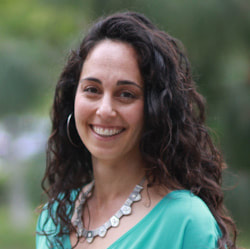Jenkins's work focuses on program evaluation and understanding the mechanisms that promote child and family wellbeing. She currently is researching factors in persistence and fadeout of early childhood intervention on a grant funded by the National Institute of Child Health and Development.
Duer studies early childhood education, Head Start, achievement gaps, education policy and parenting, with particular interest in poverty alleviation tools that improve the well-being of children and families. At the state level, her examination of the characteristics of early childhood education programs participating in Quality Rating and Improvement Systems (QRIS) includes researching the implications of blended funding models in early childhood settings. In related research she is examining Early Head Start and its impacts on children and families. For her doctoral work, she is specializing in Educational Policy and Social Context (EPSC). Jenkins and Distinguished Professor Greg Duncan serve as her co-advisors. Abstract Even with rapid and widespread expansion of states’ quality rating and improvement systems (QRIS)—tiered frameworks that assess, communicate, and improve early childhood education (ECE) quality—there exists no population-level information regarding which providers choose to participate in these primarily voluntary systems. We use a nationally representative survey of ECE centers to examine how the characteristics of ECE centers and the communities in which they are located predict participation in QRIS to understand the scope of QRIS policy implementation and the extent to which QRIS may be equity enhancing. We find that approximately one-third of centers nationwide participated in QRIS in 2012. Selection model results reveal that participation is more likely among centers that blend multiple funding sources and who are NAEYC accredited, and in communities with high poverty rates. However, QRIS participation is less likely in communities with relatively higher proportions of Black residents. Findings raise questions about how QRISs can equitably engage programs in all communities. Comments are closed.
|
Resources for:
|
|



